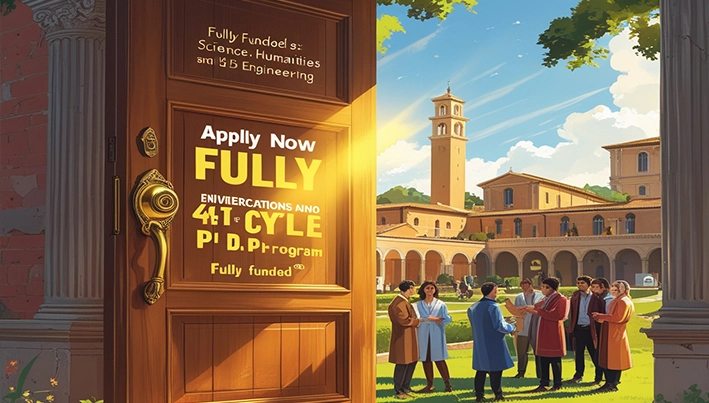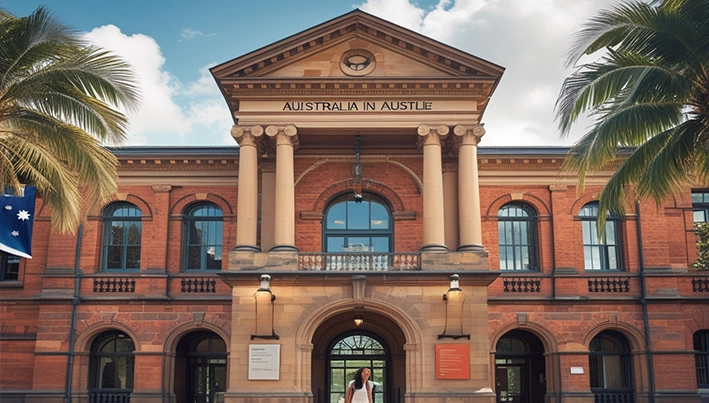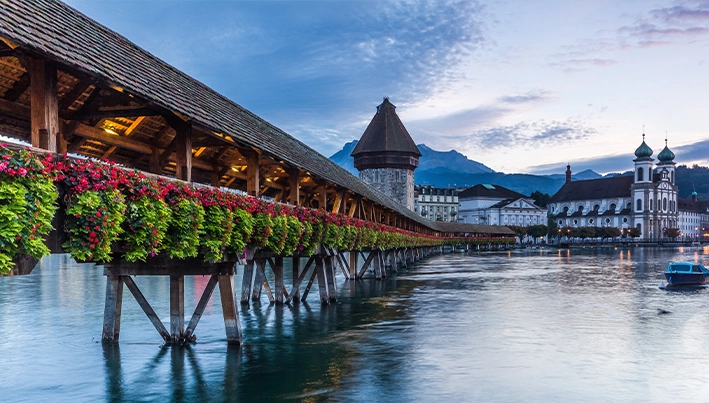Spain is quickly becoming one of the most desirable destinations for international students who are looking for high-quality undergraduate education in Europe. With its rich history, vibrant culture, and globally ranked universities, Spain offers an educational experience that combines academic excellence with a warm Mediterranean lifestyle. Moreover, in ۲۰۲۵, Spain is offering an expanded array of fully funded and partial scholarships for undergraduate students from all over the world.
Studying in Spain is not just about getting a degree. It’s about immersing yourself in centuries-old traditions, learning a new language, enjoying beautiful architecture, and expanding your worldviews. Whether you want to pursue arts, engineering, medicine, business, or humanities, Spain provides competitive programs supported by scholarships to help you reach your dream career.
-
Spanish Government Scholarships for Undergraduate Students
One of the most popular scholarship options in Spain is the Ministry of Education and Vocational Training Scholarship (MEFP). These scholarships are primarily for students who want to pursue undergraduate degrees at public Spanish universities.
Key Features:
Full or partial tuition coverage
Monthly stipend for living expenses
Priority given to students from low-income backgrounds
Available for all fields of study
Eligibility: Must meet academic excellence criteria and demonstrate financial need.
-
Erasmus+ Program (Study in Spain through Europe)
The Erasmus+ program is a European Union initiative that supports education, training, and youth. Undergraduate students from eligible countries can apply to study in Spain for one or two semesters.
Key Features:
Monthly financial support (€۳۰۰–€۵۰۰/month)
Travel allowance
Academic credit transfer
Cultural exchange with European institutions
Eligibility: Enrolled in a partner university outside Spain; selected through Erasmus+ criteria.
-
Universidad de Barcelona Scholarships for International Undergraduates
As one of the top-ranked institutions in Spain, the University of Barcelona offers multiple merit-based and need-based scholarships.
Key Features:
Tuition fee waivers
€۱,۰۰۰–€۲,۰۰۰ financial support annually
Accommodation help and language classes
Eligibility: Strong academic background and proof of language proficiency (Spanish or English).

-
IE University Scholarships – Madrid & Segovia
IE University, a leading private university in Spain, offers a wide range of scholarships for high-performing undergraduate students, regardless of nationality.
Key Features:
Up to ۱۰۰% tuition coverage
Merit-based and need-based options
Special scholarships for STEM, leadership, and humanities programs
Eligibility: Admission to IE University and a completed scholarship application with financial documents.
-
UIC Barcelona – International Excellence Scholarship
The Universitat Internacional de Catalunya (UIC), located in Barcelona, provides International Excellence Scholarships to outstanding non-EU undergraduate applicants.
Key Features:
۲۰% to ۵۰% reduction in tuition fees
Renewable yearly based on academic performance
Available across all bachelor’s programs
Eligibility: Non-EU students with excellent academic transcripts.
-
Universidad Autónoma de Madrid – Talented Students Grant
Universidad Autónoma de Madrid (UAM) supports international talent by offering grants to attract the best minds globally.
Key Features:
Living allowance (€۱,۲۰۰/month)
Partial tuition fee reduction
Support for housing and travel
Eligibility: High-achieving students; often includes interviews or personal statements.
-
Banco Santander Scholarships for Undergraduate Students in Spain
Banco Santander, in collaboration with multiple Spanish universities, provides financial aid to both Spanish and international students.
Key Features:
Financial support for tuition or living costs
Encourages diversity, inclusion, and global access
Often combined with internship or employment programs
Eligibility: Based on merit, need, or field of study (varies by partner institution).
-
University of Navarra Need-Based Scholarships
The University of Navarra, a prestigious private institution in Spain, offers need-based aid for undergraduate students.
Key Features:
Scholarships range from €۱,۰۰۰ to €۱۲,۰۰۰ annually
Designed to support students from underrepresented backgrounds
Personalized mentorship and career counseling
Eligibility: Based on family income, academic performance, and commitment to studies.
-
La Caixa Foundation Undergraduate Scholarships
Though better known for funding postgraduate research, La Caixa Foundation also occasionally supports outstanding undergraduate students, particularly in science and innovation.
Key Features:
Mentorship and academic support included
Opportunities for internships and summer programs
Apply link

-
Affordable Education in Europe
Compared to other European countries, tuition and living costs in Spain are relatively low. Many public universities charge between €۱,۰۰۰–€۳,۰۰۰ per year for undergraduate degrees.
-
Safe and Culturally Rich Environment
From the historic streets of Seville to the beaches of Barcelona, students enjoy a vibrant and safe lifestyle filled with history, food, art, and festivals.
-
Global Recognition and Diverse Programs
Spanish universities are globally ranked and offer English-taught programs, making it easy for international students to find suitable courses.
-
Post-Study Work Opportunities
Spain offers post-study work visas, and students can legally work part-time while studying. Many companies in tourism, business, tech, and education actively hire international graduates.
-
Strong Focus on Internationalization
Universities in Spain host thousands of international students each year and provide strong support services including housing, language courses, and cultural integration.
- Research the Right Program: Choose a degree and institution that offers relevant scholarships.
- Check Eligibility Criteria: Each scholarship has its own requirements—academic, financial, or nationality-based.
- Prepare Your Documents:
Academic transcripts
Passport
Language certificates (IELTS, DELE, or equivalent)
Motivation letter and CV
Recommendation letters
- Apply for Admission First: Most scholarships require university admission as a condition.
- Submit Scholarship Application: Meet deadlines and provide all required documents.
- Prepare for Interviews
- Wait for Notification and follow the next steps for visa processing.
Your Future in Spain Starts Today
If you are an undergraduate student dreaming of studying in Europe, Spain should be at the top of your list. With its welcoming culture, affordable education, and outstanding universities, Spain provides everything you need for personal and academic growth. The scholarship programs offered in ۲۰۲۵ are a golden opportunity to make your dream come true—study for free, live in one of Europe’s most beautiful countries, and graduate with a world-class degree.

Pursuing higher education abroad is one of the most powerful and transformative experiences a student can undertake. For international students, choosing the right country is as important as selecting the right academic program. It involves evaluating factors such as quality of education, cost of living, language of instruction, safety, culture, and career prospects. Among the many options available in Europe, one country stands out for its vibrant culture, globally respected universities, and a growing number of programs taught in English.
Universities in this Mediterranean destination offer a unique balance of academic rigor and cultural richness. Institutions are increasingly focused on internationalization, attracting students from Asia, Africa, the Middle East, Latin America, and beyond. Whether in cities with modern infrastructure or historic towns steeped in tradition, students can expect a high standard of learning and living.
One of the major advantages of studying in this part of Europe is the affordability. Tuition fees at public universities are significantly lower than in other Western countries, often ranging from €۱,۰۰۰ to €۳,۰۰۰ per year for undergraduate programs. Living costs are also moderate compared to other popular destinations, making it an accessible choice for students with limited financial resources. In addition, there are numerous scholarships, grants, and fee waivers offered by both government and private institutions.
Academic offerings cover a wide range of disciplines. Whether a student is interested in engineering, social sciences, architecture, medicine, humanities, or digital technology, they will find a suitable program. Many universities also offer double-degree options and exchange opportunities with other European institutions. English-taught undergraduate and postgraduate degrees are becoming increasingly common, allowing students without proficiency in the local language to begin their studies with ease.
Language, however, can also be an asset. While many international students begin with English-taught courses, there is ample opportunity to learn the local language during their stay. Universities often provide language support services and offer free or low-cost language courses. Mastering the local language not only enhances academic understanding but also opens doors to internships, local employment, and deeper cultural integration.
The teaching approach in this country often emphasizes practical learning, group projects, and direct engagement with industry. Many programs require internships or real-world assignments as part of the curriculum. Professors are generally accessible and supportive, and student support services are well-established to help with academic advising, mental health, housing, and integration into the local environment.
International students will find a welcoming and inclusive environment. Local residents are often friendly and open to cultural exchange. Many cities host events, festivals, and student communities that create a social atmosphere where friendships grow across cultures. Universities themselves organize orientation weeks, cultural tours, and peer mentoring programs to ensure that international students feel at home from the moment they arrive.
Safety is another important consideration for international students. The country in focus has a reputation for being peaceful and well-organized, with a low crime rate and high standards of public safety. Public transport is efficient, healthcare services are reliable, and infrastructure is modern. This creates a stress-free environment conducive to focused study and personal development.
In terms of post-graduation opportunities, the local government supports policies that encourage international talent to stay and contribute to the workforce. Graduates may apply for post-study residence permits or job-seeking visas. Fields such as tourism, education, technology, renewable energy, and healthcare have shown growing demand for skilled professionals. The international exposure gained through studying abroad also enhances job prospects globally.
Networking opportunities abound. Students are encouraged to attend conferences, public lectures, and professional development workshops. Alumni associations and career services often connect students with potential employers or internship opportunities. For those interested in entrepreneurship, there are start-up incubators and innovation hubs associated with universities, offering resources and mentorship.
Cultural enrichment is an inseparable part of the study-abroad journey. From centuries-old castles and cathedrals to avant-garde architecture, from flamenco music and dance to world-famous cuisine, this country offers unforgettable experiences beyond the classroom. Students can travel easily within the region and explore neighboring countries, gaining broader European exposure and understanding.
Healthcare for students is both accessible and affordable. International students are usually required to purchase health insurance, and in many cases, public or university insurance schemes provide comprehensive coverage at a low cost. Campuses often include medical clinics or partner with nearby hospitals to ensure students receive proper care when needed.
Accommodation is generally available through university dormitories or private rentals. While dormitories offer affordable options and a sense of community, private apartments or shared housing provide more independence. Most cities have housing offices or student unions that assist with finding suitable and safe places to live.
Legal procedures such as visa applications, residence permits, and student registration are streamlined through dedicated offices at most universities. These offices often provide multilingual assistance and help students comply with all legal and administrative requirements. Many institutions publish detailed guides and provide pre-arrival orientations to ease the transition process.
For students who wish to continue their education at the postgraduate level, the country offers a pathway to master’s and doctoral programs that are equally accessible and globally competitive. In fact, some universities offer integrated bachelor’s-master’s tracks that allow seamless progression for high-performing students.
Perhaps one of the most long-lasting benefits of studying abroad is the personal growth that comes with it. Students learn independence, problem-solving, and adaptability. They become more open-minded, develop global perspectives, and build cross-cultural friendships that last a lifetime. This kind of experience not only shapes academic and professional outcomes but also molds individuals who can contribute meaningfully to their societies.
In conclusion, studying in this Southern European country presents a valuable opportunity for international students to receive a world-class education while enjoying rich cultural experiences. The combination of academic quality, affordability, safety, and cultural diversity makes it a wise and fulfilling choice for young learners. As more students seek meaningful study abroad experiences, this country—Spain—continues to rise in prominence on the global education map.
Whether you are a student from Africa looking for a scholarship, an Asian applicant in search of English-taught programs, or someone from the Americas dreaming of a European adventure, this opportunity is worth exploring. Spain offers more than just degrees; it offers life-changing experiences and global futures.

The Iberian Peninsula is home to a nation with one of the most dynamic, colorful, and globally admired cultures in the world. Its traditions, music, festivals, art, and cuisine have influenced countless others and continue to be a source of inspiration and pride. With a unique blend of Roman, Moorish, Christian, and regional influences, this country offers an extraordinary cultural and entertainment experience for locals and travelers alike.
From flamenco performances in the south to street festivals in the north, from ancient Roman ruins to world-renowned museums, the country is a treasure trove of artistic expression and historical depth. Each region presents its own identity, dialect, and customs, adding layers of complexity and richness to its national character.
One of the most fascinating aspects of the country is its regional diversity. While united politically, the cultural landscape varies widely from one area to another. Catalonia, for example, has its own language, Catalan, and a distinct set of festivals, food, and artistic traditions. The Basque Country, located in the north, offers an entirely different linguistic and cultural heritage that includes the ancient Euskara language and unique culinary practices like pintxos.
Andalusia in the south is often associated with the fiery passion of flamenco, the historic grandeur of Islamic architecture such as the Alhambra in Granada, and the deeply rooted tradition of bullfighting. Meanwhile, Galicia in the northwest boasts Celtic influences, haunting bagpipe music, and coastal folklore rooted in seafaring legends.
This regional richness allows visitors and residents alike to experience many “countries within a country.” Each autonomous community contributes something irreplaceable to the broader cultural identity. This diversity is celebrated rather than homogenized, making cultural exploration a never-ending journey across the land.
Few countries in the world can rival the passion and intensity found in the performing arts here. Flamenco, arguably the most famous performance tradition, is not merely a dance or a type of music—it is a deeply emotional expression that communicates sorrow, joy, longing, and strength. Originating from Andalusia, flamenco includes the combination of guitar (toque), singing (cante), and dance (baile), and is now recognized by UNESCO as part of the world’s intangible cultural heritage.
But flamenco is just the beginning. The country is home to a wide array of music styles, including pop, rock, opera, and classical. Its cities regularly host international music festivals and theater productions that attract performers and audiences from across the globe.
The theatre scene is robust as well, with venues ranging from ancient Roman amphitheaters still in use today to cutting-edge experimental stages. Annual events such as the Mérida International Classical Theatre Festival and the Sitges Film Festival highlight the depth of talent and creative innovation present throughout the nation.
The calendar is filled with festivals that transform cities and villages into living works of art. The country celebrates more than ۱۰,۰۰۰ festivals every year, and each one carries its own story and significance.
Among the most famous is La Tomatina, where thousands of participants gather to throw ripe tomatoes at each other in the streets of Buñol. It’s a joyful, messy, and unforgettable experience that draws tourists from all over the world. Another globally renowned event is San Fermín in Pamplona, famous for the running of the bulls. Though controversial, it remains a powerful symbol of tradition and adrenaline.
In Valencia, Las Fallas combines pyrotechnics, satire, and sculpture into one of the most spectacular events of the year. Gigantic wooden figures are paraded through the streets and later set ablaze in an unforgettable finale. In Seville, the Feria de Abril offers another kind of wonder—colorful dresses, horse parades, flamenco, and joyous singing lasting all through the night.
These events are more than entertainment; they are a reflection of the national soul—deeply tied to community, identity, and historical continuity.
Food is not just sustenance; it is an art form. Each meal tells a story, and every dish carries layers of history and regional pride. The local cuisine is world-famous for its flavor, variety, and boldness. Tapas culture encourages sharing, conversation, and long meals that stretch into the night.
In the north, you’ll find hearty stews, cheeses, and seafood dishes that reflect the rugged coastline. The south offers rich and spicy options like gazpacho and salmorejo, while the east is famous for paella, a saffron rice dish often served with seafood or rabbit. In the Basque Country, pintxos—small bites served on skewers—line the bars and offer a gourmet experience in every mouthful.
Wine culture is equally robust, with regions like Rioja and Ribera del Duero producing internationally acclaimed vintages. Each glass reflects the soil, sun, and care of generations of winemakers.
Markets such as Barcelona’s La Boqueria or Madrid’s Mercado de San Miguel showcase the incredible variety of produce, meats, cheeses, and sweets available. These vibrant spaces serve not just as shopping venues, but as social and cultural hubs where generations gather, taste, and celebrate the richness of life.
Art lovers will find no shortage of inspiration. The country has produced some of the most celebrated artists in the world—Picasso, Dalí, Miró, and Goya among them. Museums like the Prado, the Reina Sofía, and the Guggenheim Bilbao are pilgrimage sites for anyone interested in visual creativity.
Architecture is another realm where this country excels. From ancient Roman aqueducts and Islamic palaces to Gothic cathedrals and modernist marvels like Gaudí’s Sagrada Família, the built environment here tells a story of evolution, fusion, and vision.
Cities like Córdoba, Toledo, and Salamanca feel like open-air museums, each corner offering another glimpse into a richly layered past. Meanwhile, urban centers like Valencia and Bilbao showcase how innovation and tradition can coexist, giving rise to futuristic buildings nestled among medieval structures.
The film industry has grown steadily and now produces award-winning features that receive international recognition. Directors such as Pedro Almodóvar have won acclaim for their emotionally complex and visually stunning narratives. The country’s film festivals, especially those in San Sebastián and Sitges, attract global attention and support new talent from around the world.
Television and digital streaming platforms are also seeing a surge, with dramas and documentaries gaining popularity both domestically and internationally. This rising media presence contributes to the global export of local culture, language, and values.
When the sun sets, the energy shifts—but it never fades. The nightlife is legendary. Cities like Madrid and Barcelona are known for their lively atmosphere, with bars, clubs, and live music venues that keep the beat going until dawn. What sets it apart, however, is not just the duration but the warmth. People go out not just to party, but to connect—often starting the evening with shared meals and drinks before moving on to music and dancing.
This vibrant social life is deeply ingrained in the national culture. Whether it’s a small town gathering for an outdoor concert or a cosmopolitan crowd at a rooftop lounge, the emphasis is always on human connection, joy, and celebration.
The culture and entertainment landscape of this European nation is a vibrant tapestry woven with history, creativity, and the joy of life. Its people express their identities not just through words or rituals, but through dance, food, art, and shared experiences that span centuries. From ancient traditions to cutting-edge performances, from quiet mountain villages to bustling urban centers, it offers something for every traveler, artist, or student of the world.
For those looking to explore beyond the usual, for those who want to live and breathe culture, music, cuisine, and joy—Spain is more than a destination. It is a celebration of life. And in every rhythm, every flavor, and every street corner, the celebration continues.











Leave a Reply